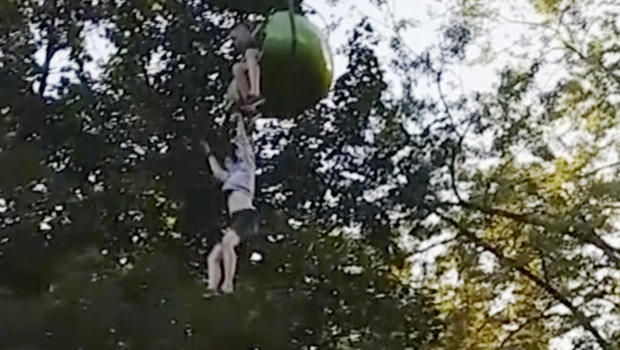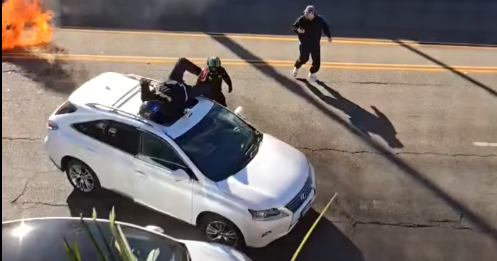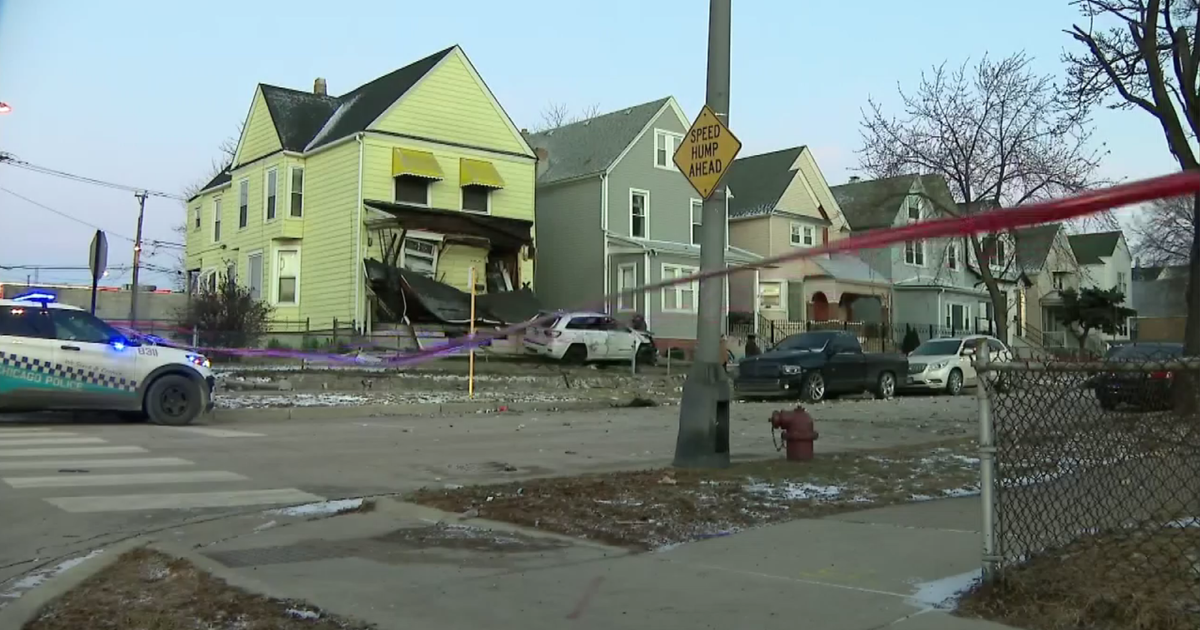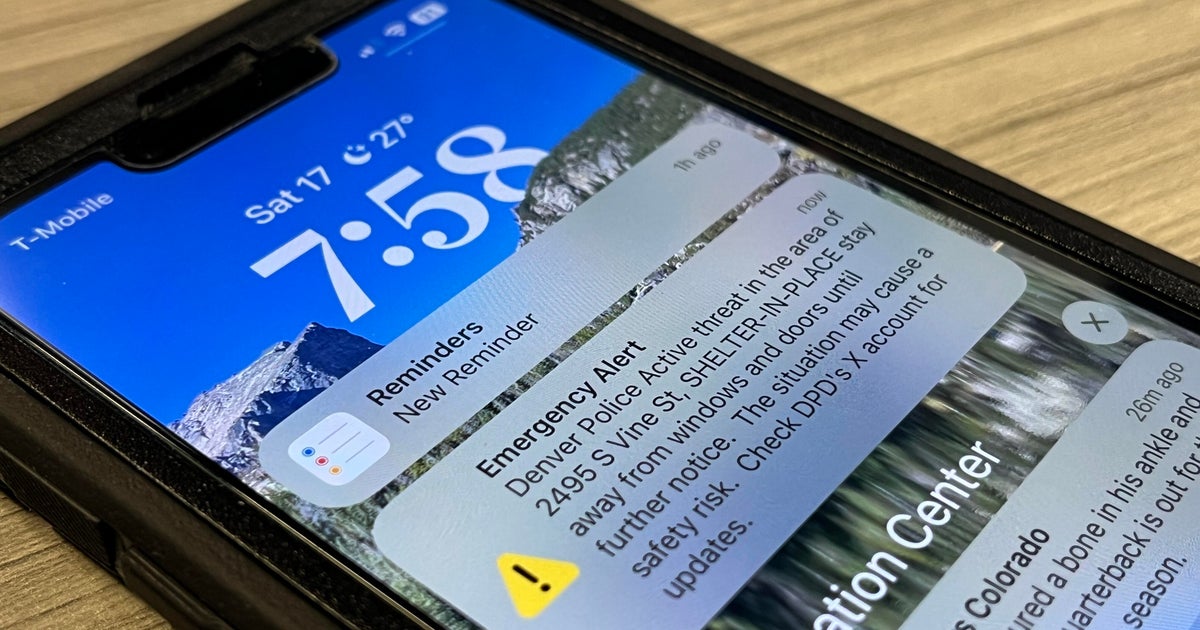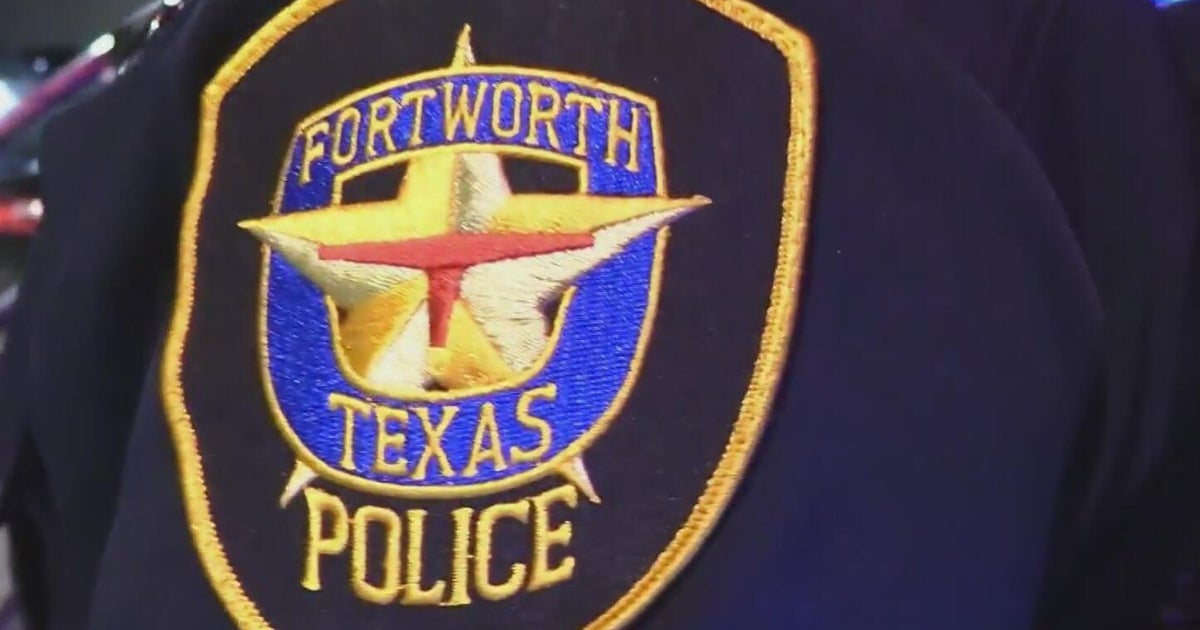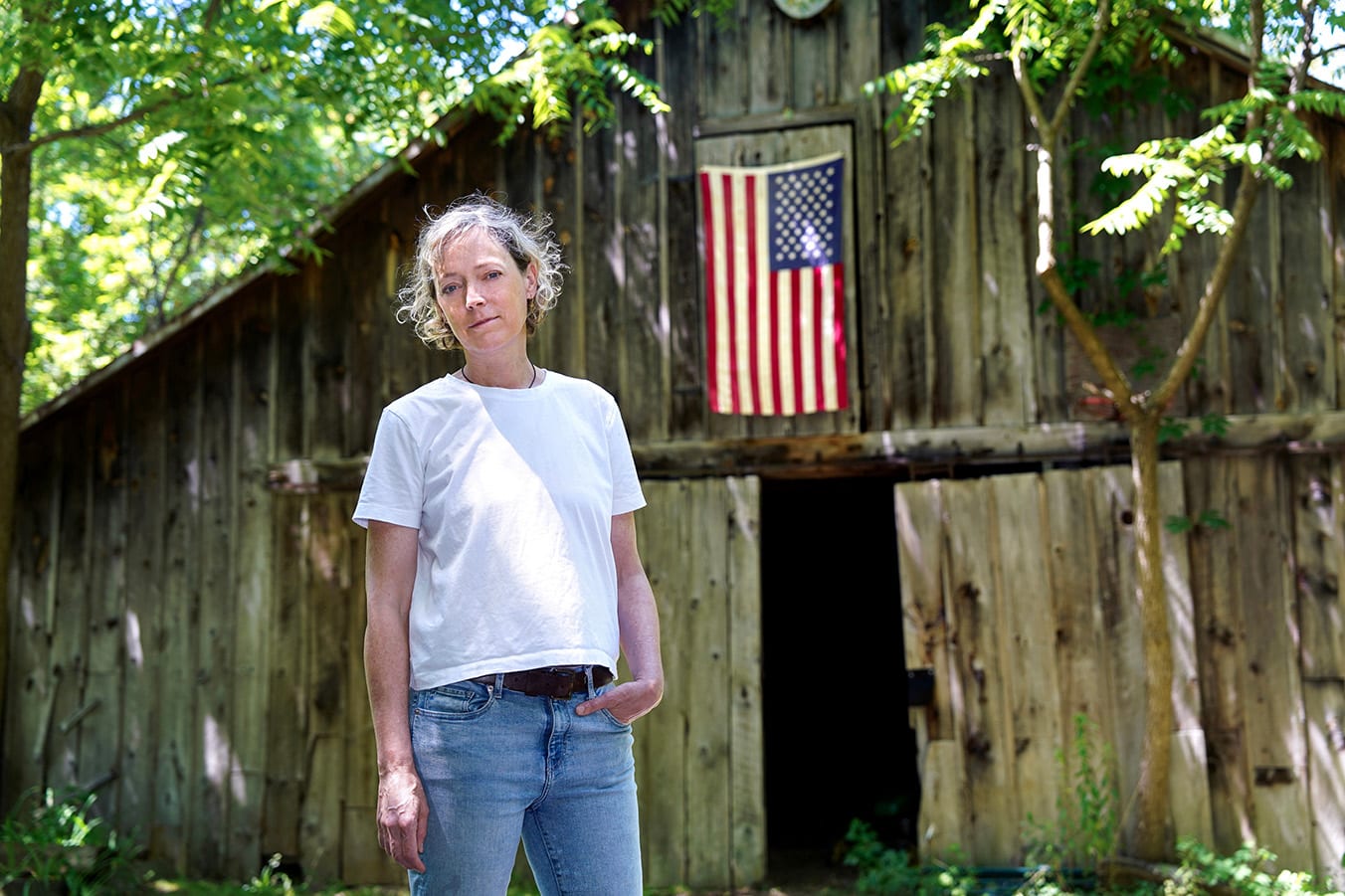What are the odds of surviving 25-foot fall from amusement park ride?
A video of a teenager dangling from an amusement park ride and then falling 25 feet into the waiting arms of people below is chilling, but ends with relief when she survives. The frightening incident raises questions about the odds of injury and survival after a drop from such a height.
It happened on Saturday evening at Six Flags Great Escape in upstate New York. Matthew Howard Sr. was just leaving the amusement park when he told CBS News that he heard a girl screaming for help and looked up to see her hanging from a slow-moving gondola ride. Howard, 47, and his and his daughter, Leeann Winchell, 21, ran over and positioned themselves under the girl as the ride stopped. Along with a number of other park guests and employees gathered at the scene, Howard urged her to let go, telling her they'd catch her — and they did.
The girl, from Greenwood, Delaware, was taken to Albany Medical Center in stable condition with no serious injuries, the Warren County Sheriff's Office said. Winchell suffered some back pain.
The teen was lucky, according to one emergency medicine expert who talked with CBS News about the chances of a person surviving such a fall or walking away uninjured.
While serious amusement park accidents are rare, falls are common and can be life threatening, said Dr. Robert Glatter, an emergency physician at Lenox Hill Hospital, in New York City.
"We see fall victims every day. Sometimes it's a fall from a few feet, but even that can kill a person," he said.
Several factors may affect a person's outcome, including the person's weight, the distance of the fall, the type of surface on which they land, whether or not anything helps break the fall or slow it on the way down, and how a person lands.
The blunt force from the impact of a fall can cause damage to internal organs, including the spleen, lungs, liver and heart. Trauma to the chest, spine and skull can be irreversible.
"They can cause ruptures to the bowel, the spleen. An aortic rupture is the main thing that kills you when you fall," Glatter said. Aortic rupture, or a tear in the main artery in the body, leads to rapid, fatal bleeding.
If the spine is fractured high up, in the cervical area (the neck), it is often deadly.
"There's an integral connection to the spinal cord that controls breathing and if it is damaged, it quickly can kill a person," Glatter explained.
Some clear thinking and luck on the way down can help reduce injury during a fall.
"If you're able to retain your composure, put your head down and curl your body up into a fetal position, that will help reduce your chance of damage to your internal organs or head and neck," said Glatter.
The teen reportedly knocked into some tree branches as she dropped, which may have slowed her fall.
If the gondola had been any higher or there hadn't been people below to help break her fall, the girl might not be alive. Falls from a distance greater than 30 feet (about 10 meters) have a high probability of inflicting serious injuries, Glatter said.
He said there's a commonly cited measure of risk for death from falls that's called the LD50 — it's the distance at which you have a 50 percent chance of dying.
"If you fell from 48 feet, the equivalent of four stories, you have a 50 percent chance of surviving. When the distance increases to 84 feet, or seven stories, your chance of dying increases to 90 percent with little chance of survival," Glatter said.
Falls are the leading cause of non-fatal injuries for all children aged 19 and under, according to the U.S. Centers for Disease Control and Prevention. Approximately 8,000 children are treated in U.S. emergency rooms for fall-related injuries every day — totaling almost 2.8 million children a year.
Authorities say in the case at Six Flags this weekend, the girl's own actions caused her to fall from the ride.
Lt. Steven Stockdale of the Warren County sheriff's department told The Post-Star of Glens Falls, New York, that "human error" on the part of the teen caused her to slip under a metal restraining bar on the Sky Ride gondola while riding with her brother.
"It could have been a lot worse than it was," Stockdale said, noting that the ride was found to be functioning properly.
